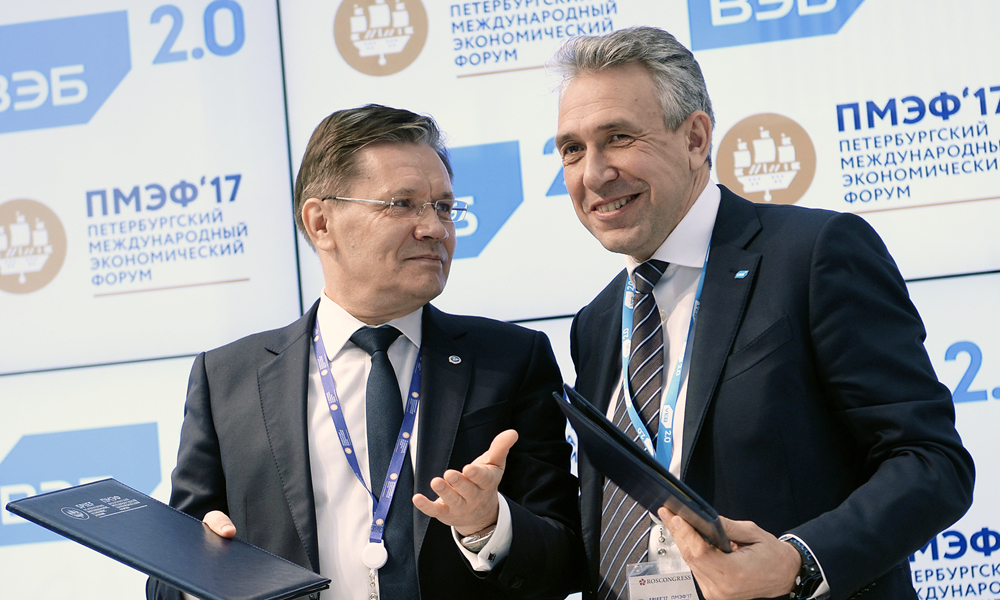
There Is No Alternative to Nuclear Energy
back to contentsNuclear power generation is key to green energy, according to Alexei Likhachov. “There is no other way for green energy to develop in the world, Russia included, than through development and expansion of nuclear energy. Moreover, we understand that many power stations will be put out of operation soon and need replacement. Of course, this concerns other sources of power as well, not only nuclear. This is the reason why along with satisfying the global demand growth we have to provide for the capacity replacement,” noted the CEO of Rosatom.
He stressed that nuclear energy could not be replaced with other sources, either hydrocarbons (due to a sharp increase in emissions) or renewables (due to high costs and poor performance at peak loads). It is pointless to talk about changes in the global energy mix and achievement of climate-related targets, he added, without further development of nuclear power generation.
“2015 was a very eventful year for the industry, but the Paris Agreement was a central event in every respect. In fact, those did not win who were skeptical about the human role in climate change. The victory is scored by those fearing for the future of mankind. We entered 2016 with hope that 175 countries agreed on joint financial and intellectual efforts to dramatically reduce greenhouse gas emissions. If we imagine that the global share of nuclear power, which is now 11%, is replaced with fossil fuels, it will add 2 billion tons of CO2 to annual emissions. This is what we could have if we had not developed nuclear power,” Rosatom CEO said.
According to him, all forecast have one thing in common: global power consumption will inevitably grow, and new demand will be satisfied with green energy. “Will we be able to satisfy the growing demand with only hydro, wind and solar power? No, we won’t,” Alexei Likhachev says.
The CEO of Rosatom drew attention to Germany’s recent experience. Its nuclear phase-out program has already brought about certain negative results, including high spending on the program, slow growth of the country’s installed capacity, and growth of emissions. “As far as I know, Germany invested almost 25 billion Euros in alternative energy. Its installed alternative capacity makes now about 18% of the country’s energy mix – as much as nuclear energy in Russia – but total capacity has increased by just a few percentage points. As you can easily guess, all costs are finally born by consumers, those who pay utility bills. In addition, the more nuclear generation capacity is decommissioned in Germany, the more carbon dioxide is emitted. This situation is exemplary for everyone of us, but these are goals of the German government; we have ours. In Russia, the trend is opposite. We increase the share of nuclear power generation and development of new technology,” Alexei Likhachev noted.
Nuclear brings West closer
Alexei Likhachev also pointed out that civil nuclear projects would facilitate cooperation between Russia and the West. “I think our businesses miss successful international projects between Russian and European companies, Russian and Japanese companies, as well as companies from other countries that have to refrain from political contacts [with Russia] for certain reasons,” Likhachev said. According to him, the nuclear industry like no other can serve as a bridge between businesses, economic elites and countries.
I would like to mention than no project carried out by Rosatom overseas has been affected by Western sanctions against Russia. Experts say that Russia has been developing its international contacts with success. For example, the European Commission has given a green light to the Paks NPP expansion project to be carried out by Rosatom in Hungary. The Government of Finland has approved Hanhikivi-1, a joint Finnish-Russian nuclear construction project. One more example is a Russian-Japanese memorandum of civil nuclear cooperation. Rosatom Group has signed numerous contracts with foreign companies in different areas of interest, including promotion of Russian-designed TVS-K fuel assemblies in the USA and Sweden, and uranium supplies to the American market.




